Transforming the landscape of STEM in Africa
Dr Alice Amegah (Christ's 2019)
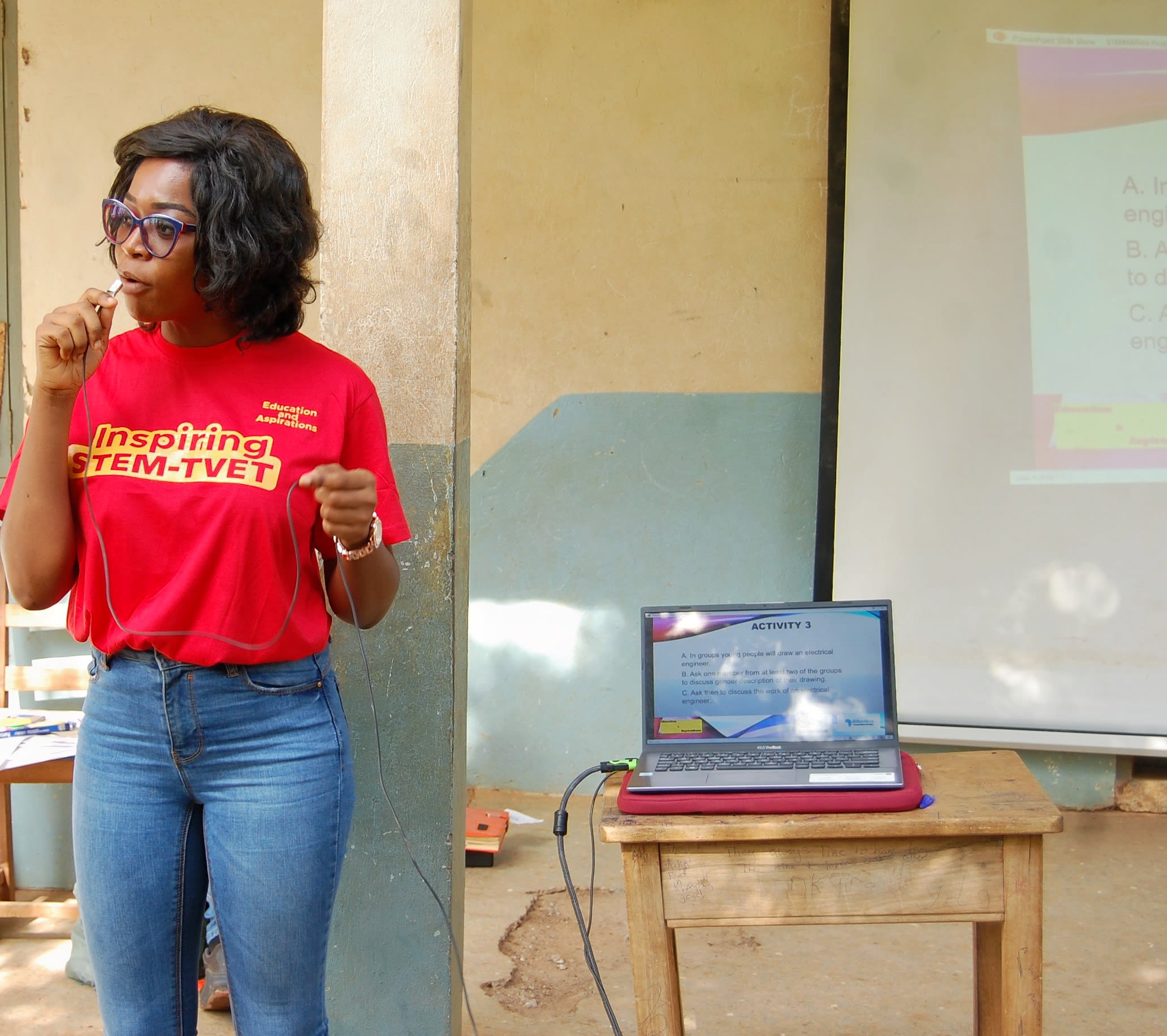
Dr Alice Amegah is a Faculty of Education alumna who graduated with a PhD in Education and International Development. At 9 years old, Alice was told that her learning prospects wouldn’t extend far beyond primary school — and yet her academic journey took her from Ghana to Cambridge and back again!
This is the story of how her determination became a passion for making education, particularly in science and technology, a possibility for all...
A young rebel with a cause
'Psychological reactance': it’s the scientific term for when we feel that our choices are being restricted, or we’re told the dreaded words “You can’t”, so we rebel against the constraint and do just the opposite.
Few of us, though, would turn that determination in the face of limitation into a life’s passion. But Alice Amegah didn’t hesitate:
"I come from a rural community called Boadua in eastern Ghana, which largely relies on trade, cocoa farming and small-scale mining as a means of income. It’s not a community where many people are highly educated. Growing up, I knew few women who had progressed much past middle or high school. So, I didn't see myself doing a lot with my schooling, although I loved it!"
The first time Alice heard about university was from her grandma: "I used to cry a lot when I was a girl and I remember her saying, 'You will cry until you go to the university, if you don't stop crying now'."
It piqued Alice’s interest: what was university, and could she go? The pivotal moment came when she was 9 years old, and it was to set her on a lifelong path:
"I’ve always loved learning and sharing this enthusiasm. I would gather the children within my community so we could do our homework together."
"At one of those gatherings, a boy asked me why I liked learning so much, and what did I plan to do with all my schooling? I said, 'I want to go to university' and he said, 'No, that is not possible, because every single girl in the community doesn't make it far. Either you get pregnant, or you end up being a trader like your mum'."
"I remember throwing back his challenge and saying that I would continue to go to school. I would go to the University of Ghana, and attain the highest form of formal education."
"I would make sure that every single girl knew that it was possible for her to achieve this. That was where my conscious passion for education began."
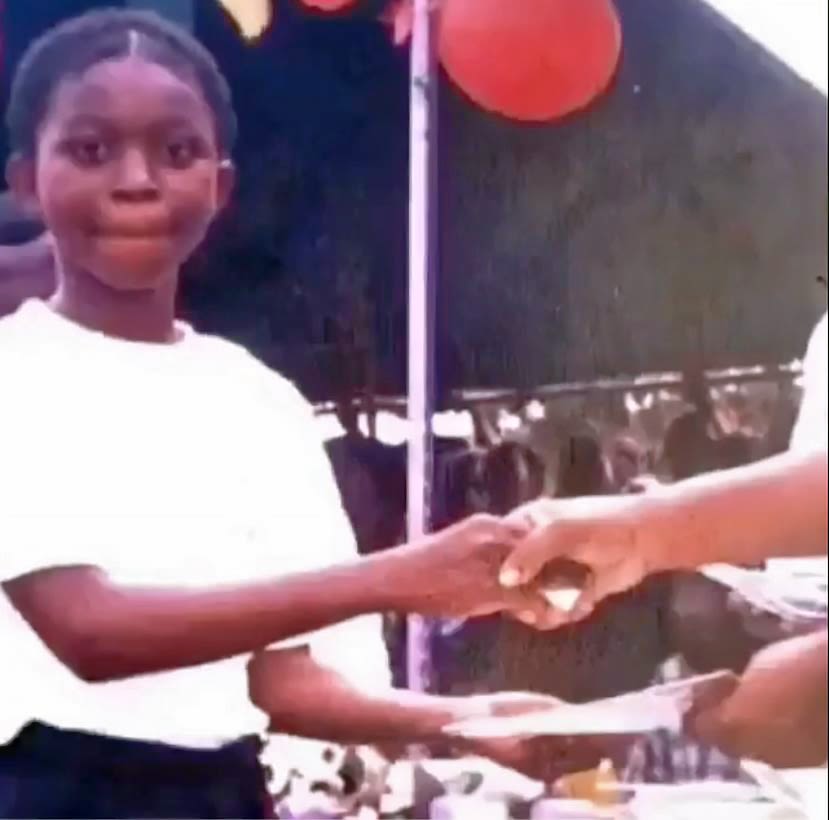
Alice receives an award for her studies at primary school.
Alice receives an award for her studies at primary school.

Alice engaging pupils on STEM and TVET education pathways.
Alice engaging pupils on STEM and TVET education pathways.
Gathering focus, momentum and purpose half a world away
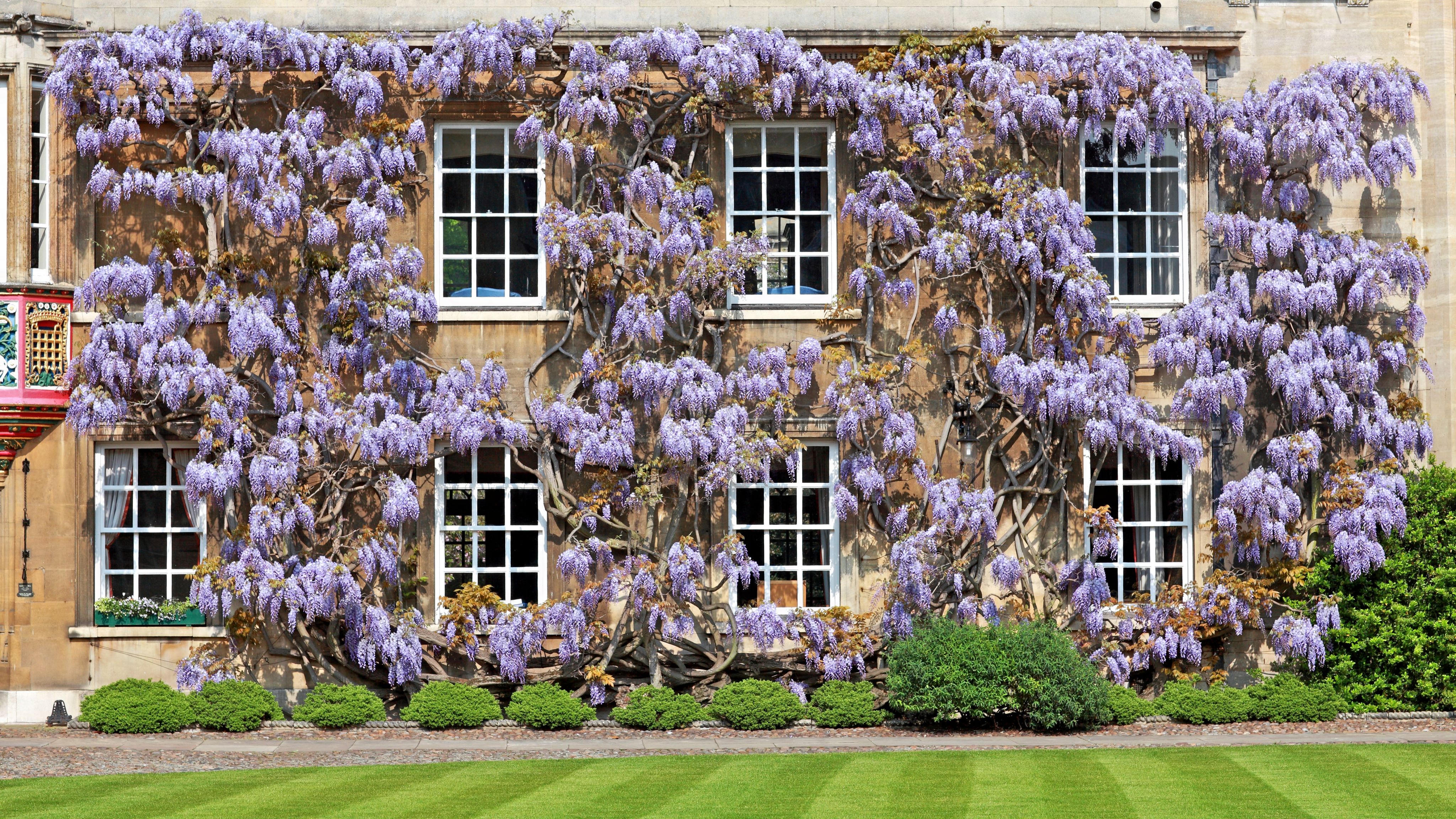
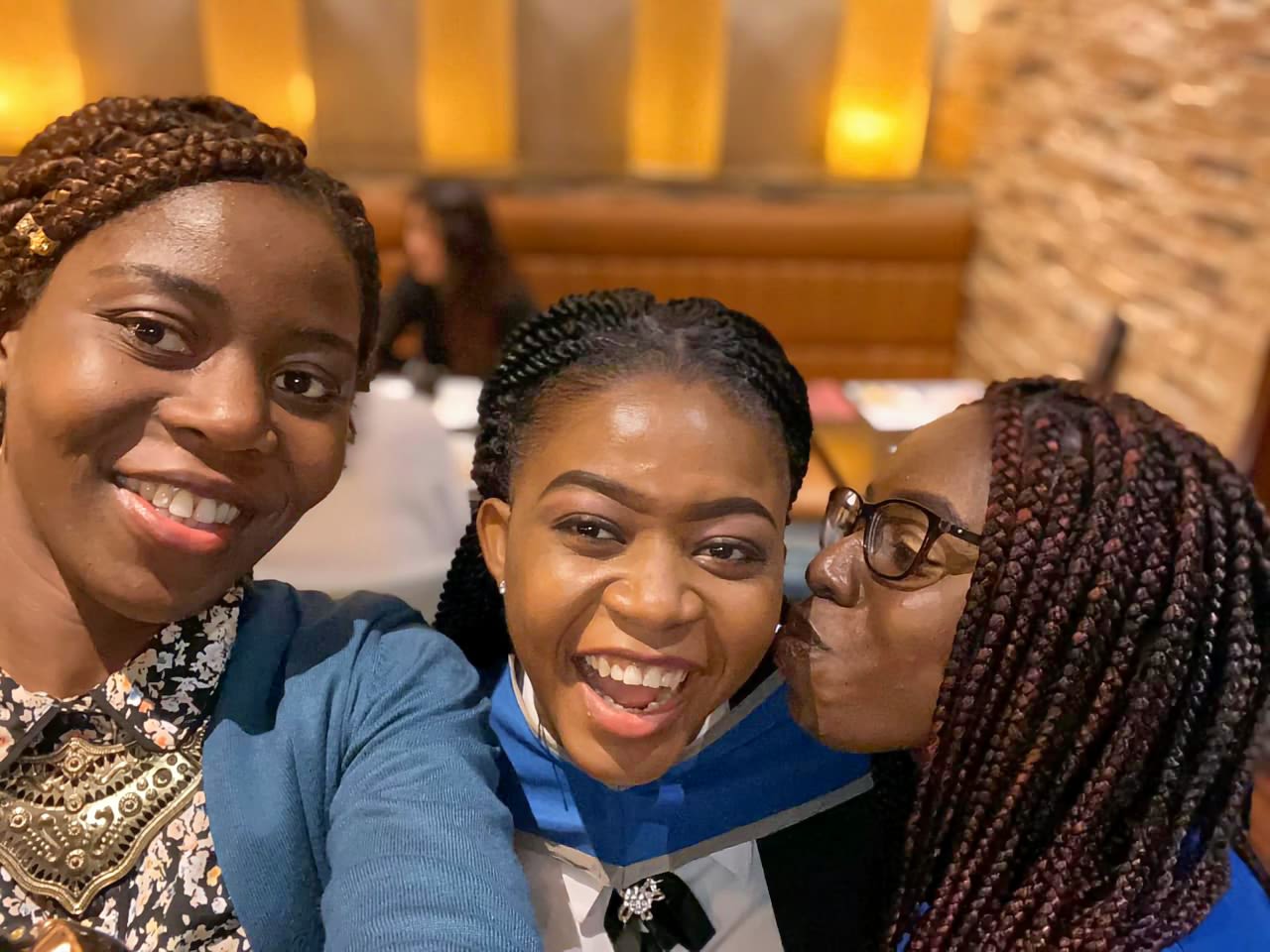
Alice and her best friends at her Oxford Graduation.
Alice and her best friends at her Oxford Graduation.
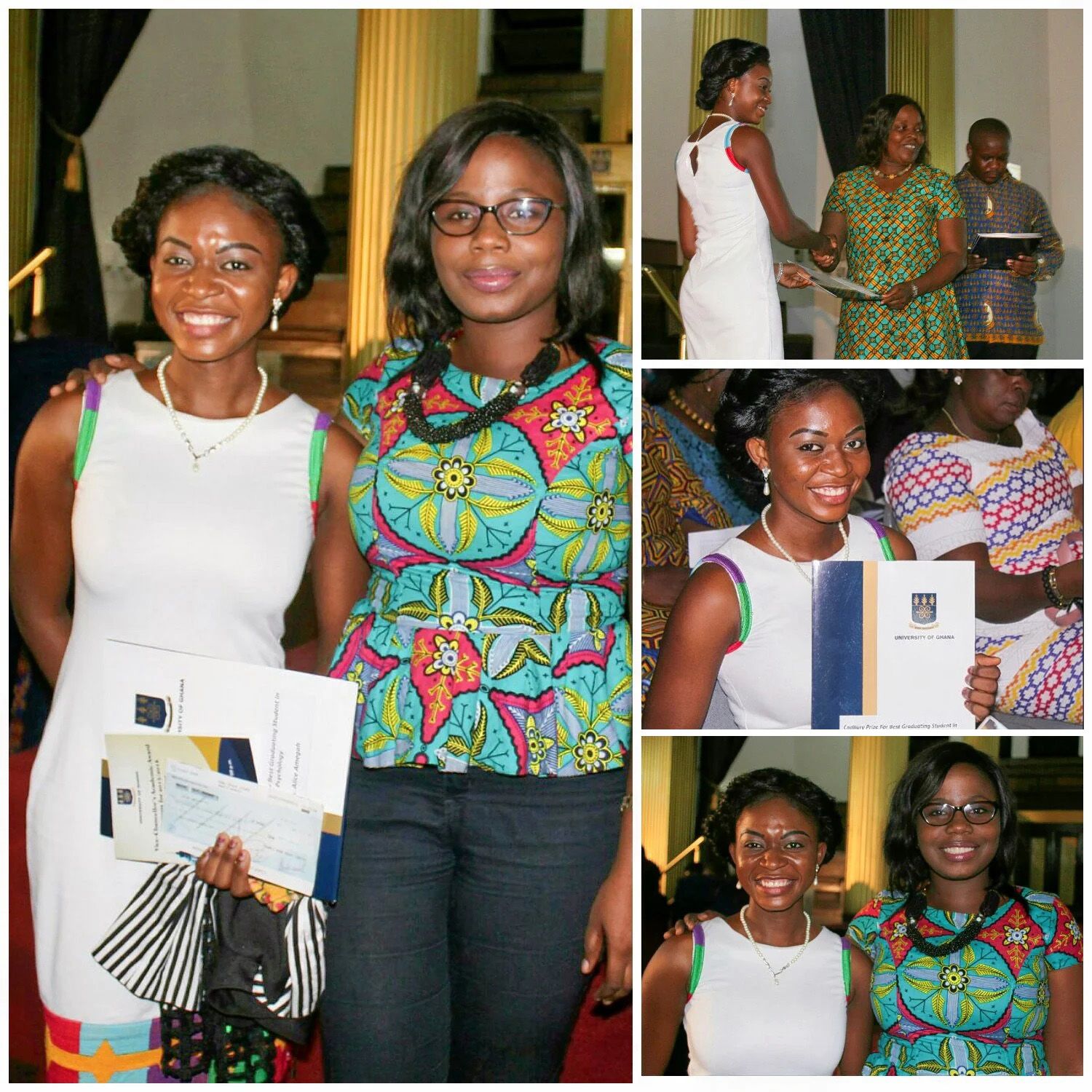
Alice receiving an award for best graduating student in Psychology at the University of Ghana.
Alice receiving an award for best graduating student in Psychology at the University of Ghana.
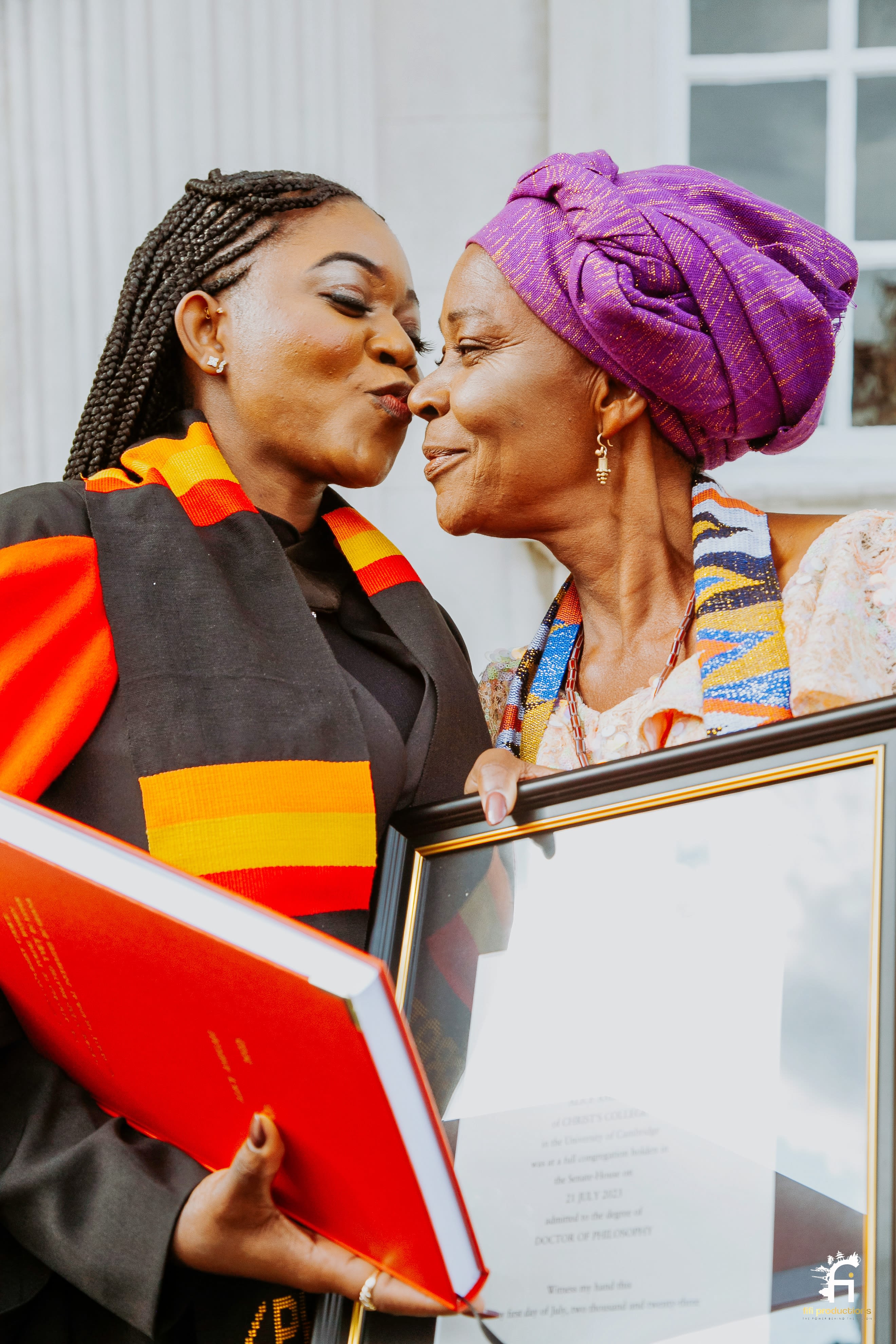
Alice and her mum at her Cambridge graduation
Alice and her mum at her Cambridge graduation
True to her word, Alice continued her studies and attended the University of Ghana, where she read Psychology. She then gained a master’s in Comparative and International Education from Oxford.
Alice tells us: "It was an opportunity for me to apply what I’d learned in my degree, mostly focused on clinical and educational psychology, and shift my focus towards aspiration psychology and what motivates students to gain skills."
"I was very curious about the lack of conversation around women studying STEM [science, technology, engineering and maths]. At school, I excelled in science and was encouraged by my teachers to study a science programme, but like most girls, I opted to do non-scientific subjects. Studying international education meant I could start devising ways to get more young women to consider the core scientific and technical educational pathways and see what other countries were doing in terms of vocational education."
After finishing at Oxford, Alice found the perfect project supervisor at Cambridge for her chosen PhD, focused on creating wider inclusivity in STEM & TVET (technical vocation education and training).
"Finding a supervisor at Cambridge with whom I had a strong connection made a huge difference, especially as I was studying during the pandemic."
"Professor Geoff Hayward and I met once every week during COVID, so I stayed on track, and it was great to have that additional pastoral support during a time when everybody was feeling so isolated. He shared and valued my passion for education, gave me room to be an independent researcher, and most importantly, helped in transitioning my thesis and ideas into the creation of an NGO."
More on that later!
Studying at Cambridge
What makes Cambridge special?
"Cambridge gives you a good blend of history and modernity. It’s also an environmentally friendly place, which I like very much. I enjoyed the green spaces, particularly the gardens at Christ’s College, and when the flowers bloomed it did give a magical feel."
"One of my most memorable experiences was becoming President of the African Society at Cambridge. During my time, we submitted a white paper on how the University could support the welfare and academic success of African students, or students of African descent, and I have seen a lot of our recommended changes being implemented."
"It was an opportune time because the University was developing the Mastercard Foundation Scholarship for African scholars, and some of the recommendations that we made were taken on by the Foundation. There is now a strong mentorship element for the students because of us, and I’d urge any African students looking to study at Cambridge to apply via the Mastercard programme."
"Cambridge can seem very elite, but you soon realise that it can be for everyone, regardless of background."
"Of course, you do have to be academically strong, but Cambridge provides the relevant resources for you to flourish. It’s a place that nurtures talents and ideas and helps alumni to take these skills and ideas beyond their studies to become real changemakers and benefit the global community."
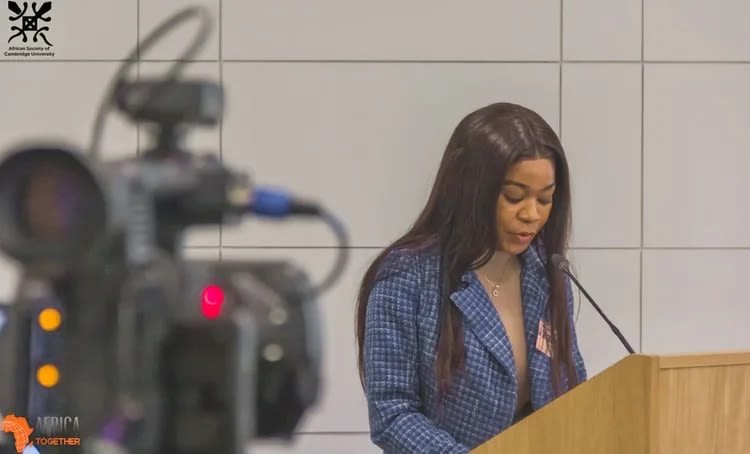
Alice delivering a speech as President of the African Society at Cambridge.
Alice delivering a speech as President of the African Society at Cambridge.
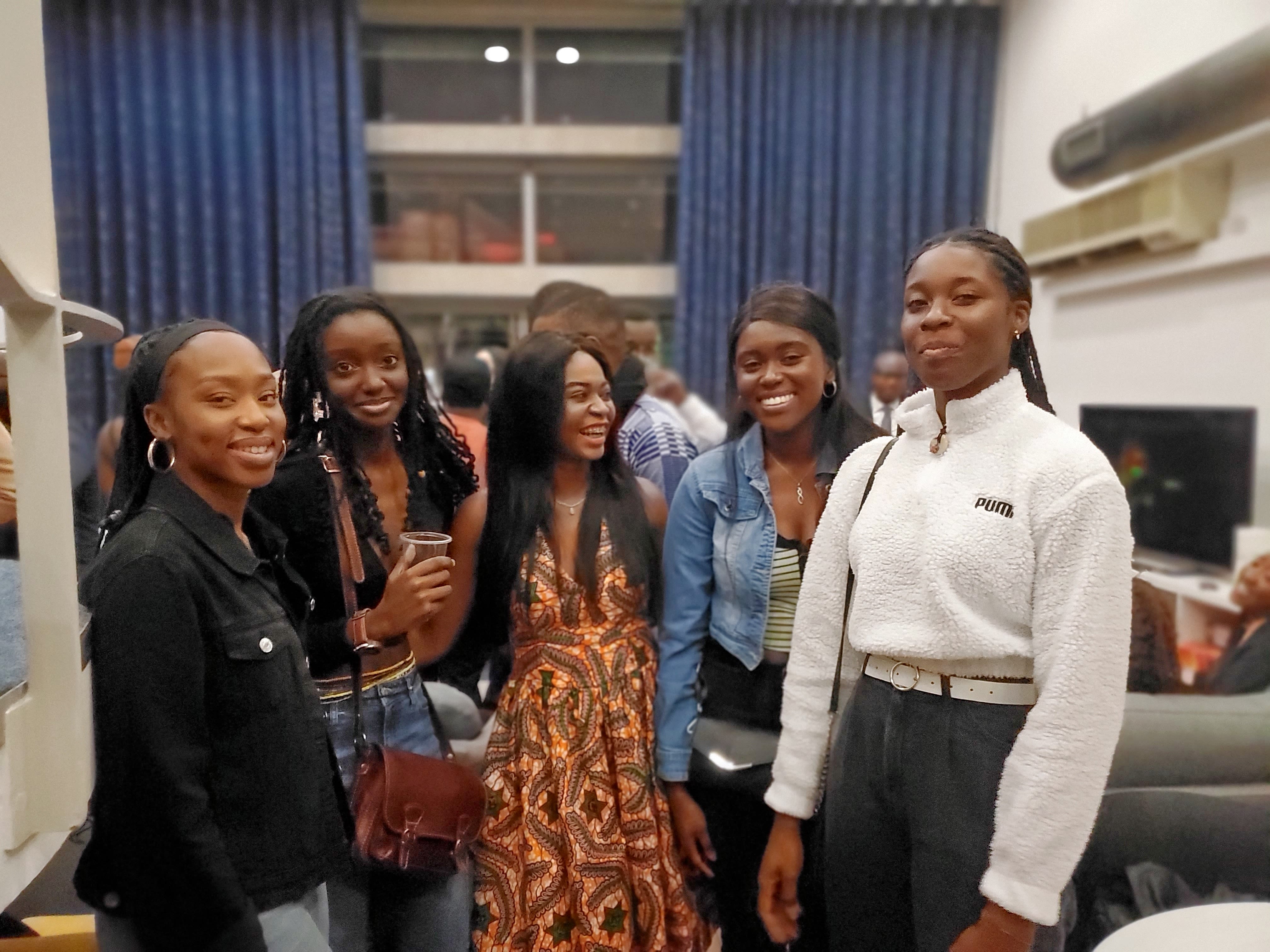
Alice with other African scholars at Christ's College.
Alice with other African scholars at Christ's College.
Next steps and keeping old promises
After completing her PhD, Alice was accepted from a pool of over 4,000 applicants onto the Education Fellowship at the World Bank.
"I was assigned to the South Asia Education Practice, where I supported the Indian education team working on a knowledge exchange project between India and countries from sub-Saharan Africa. Afterwards, I became a consultant at the Bank, working on projects such as skills development in Sierra Leone and a global report on digital skills."
In parallel, Alice worked to develop a project of her own:
"In 2021 I returned home to pilot some of the ideas from both my theses. One of the key things that I was looking at was how to get young people, especially girls, to start thinking about STEM & TVET as an option. The number of STEM jobs is growing nearly twice as fast as other non-STEM careers".
"It’s estimated there will be over 11 million STEM jobs by 2030 so there is a huge demand for these skills."
"I was working with the Education and Employers Charity in London, which provided support to get mentors from the UK to engage virtually with young people in Ghana. That was the beginning of my NGO, the Education and Aspirations Hub. Ever since then, we have been engaging young people, providing free education, career guidance and counselling sessions. Currently, we are based in Denkymebour, the district where I grew up and I feel like I’m giving back to my community, but the vision is to reach more districts and into other African countries."
Alice and her team work closely with schools and community groups, providing complementary skills-based services:
"We recently provided a teacher training programme on STEM career guidance, so teachers feel empowered to lead young people to choose these courses. We also run social media campaigns where women in STEM talk about their careers and host online resources with information related to the different career pathways."
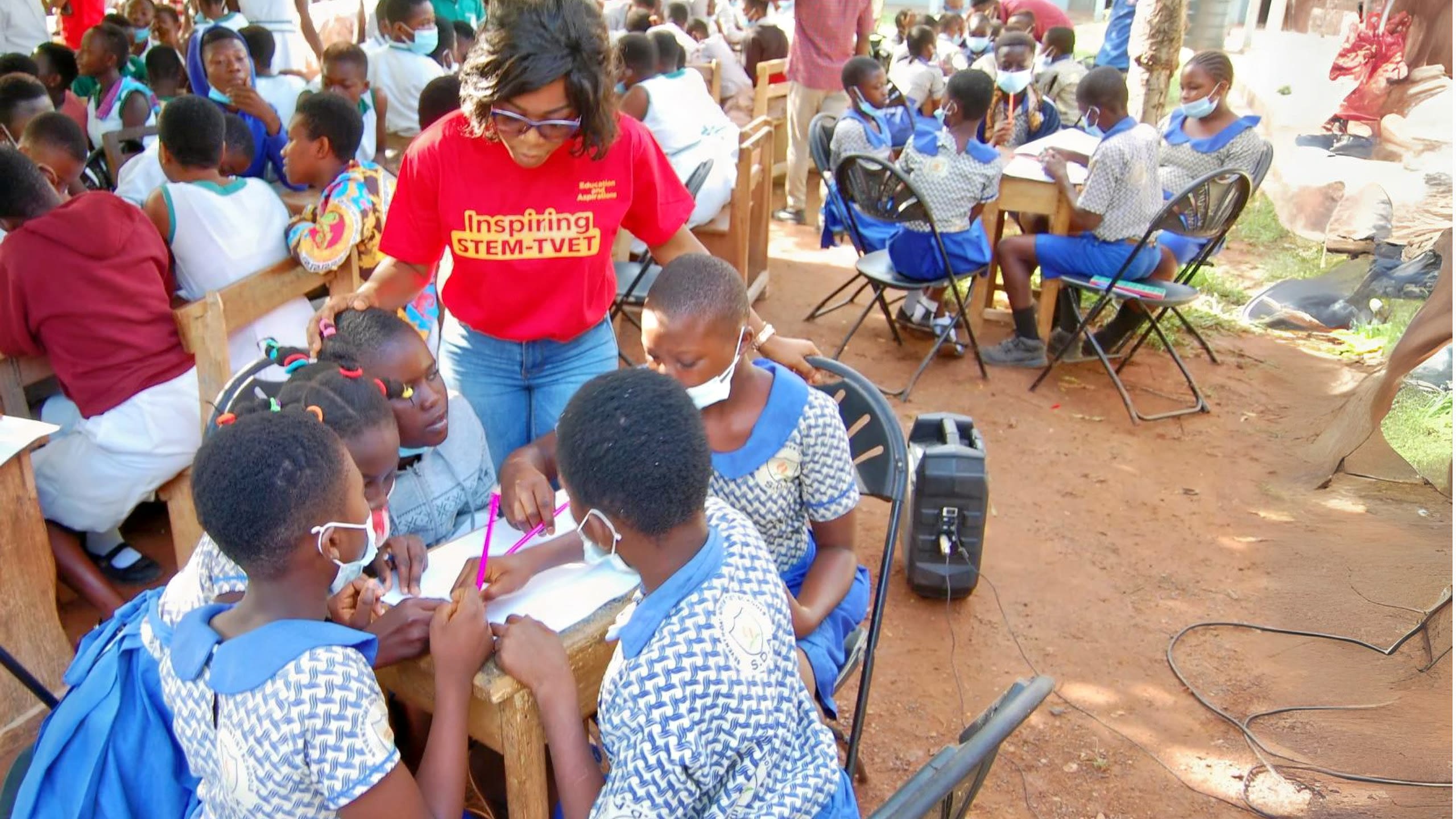
And the response to the Hub has been overwhelmingly positive:
"We’ve had parents asking when we’re coming to their areas, so we’re looking at training graduates to go to these districts and act as peer advisors and mentors. The headteacher of a girl's senior technical school said, “After your sessions, my girls are changed. Now they’re asking for more STEM exposure through computer and science laboratories."
"I’d reiterate that STEM is for everyone, whatever your passion or academic capacity. It's not just for people who are intellectually strong or mathematically minded. If you have interest and the right resources, it’s for you."
Supporting a lifelong passion and living true to herself
So, what’s next?
"Right now, I’m working on how to get stakeholders engaged and glued to a programme – within the Ghanaian context we face a lot of challenges on making our work accessible, and funding is a big one. We need more people to invest in the Education and Aspirations Hub, but I always say that when you have a positive goal, the impact speaks for itself. Young people are already gravitating towards the project and going back to their schools to live the change."
Alice’s work was recently recognised by WorldSkills UK when she was a finalist in their annual Inclusion and Diversity Heroes awards for young people who are impacting diversity in skills development:
"I still volunteer and work for the Education and Employers Charity in London, and the CEO nominated me in the Rising Star category for my work on making technical education more inclusive. It was surprising for me to have been shortlisted as a finalist, and it’s nice that my work is being recognised in the UK."
"The Education and Aspirations Hub is a lifelong project, and I can see the focus shifting to include green skills and more digital technologies. The work that I’m doing gives young people the chance to broaden their horizons and to challenge stereotypes, so it always brings me joy."
And for anyone interested in setting up their own project, Alice has this insight:
"One of the things that holds us back is uncertainty. When I started the Hub, I was only able to get grants of $1,000-2,000, and I’d do what I could with that. The constant fear of where the next bit of funding was coming from built courage and resilience within me and drove me to keep going. Fear can hold us back, but being bold enough to do, and not just imagine, will lead to the changes that we want to see in our communities."
"I feel like I'm living true to my younger self and the promise she made about expanding possibilities for girls."
"I mentor a lot of people, and to see the girls from the rural neighbourhoods develop that passion to go to school is really fulfilling for me. Your words can make someone rethink their lives and give hope and belief that they are capable – it’s a powerful gift. I feel like this is the future, you know?"
A final thought for those interested in coming to Cambridge to study in STEM:
"Be bold and apply! STEM shouldn't terrify you."
You can find out more about studying these subjects at Cambridge on our course overview page.
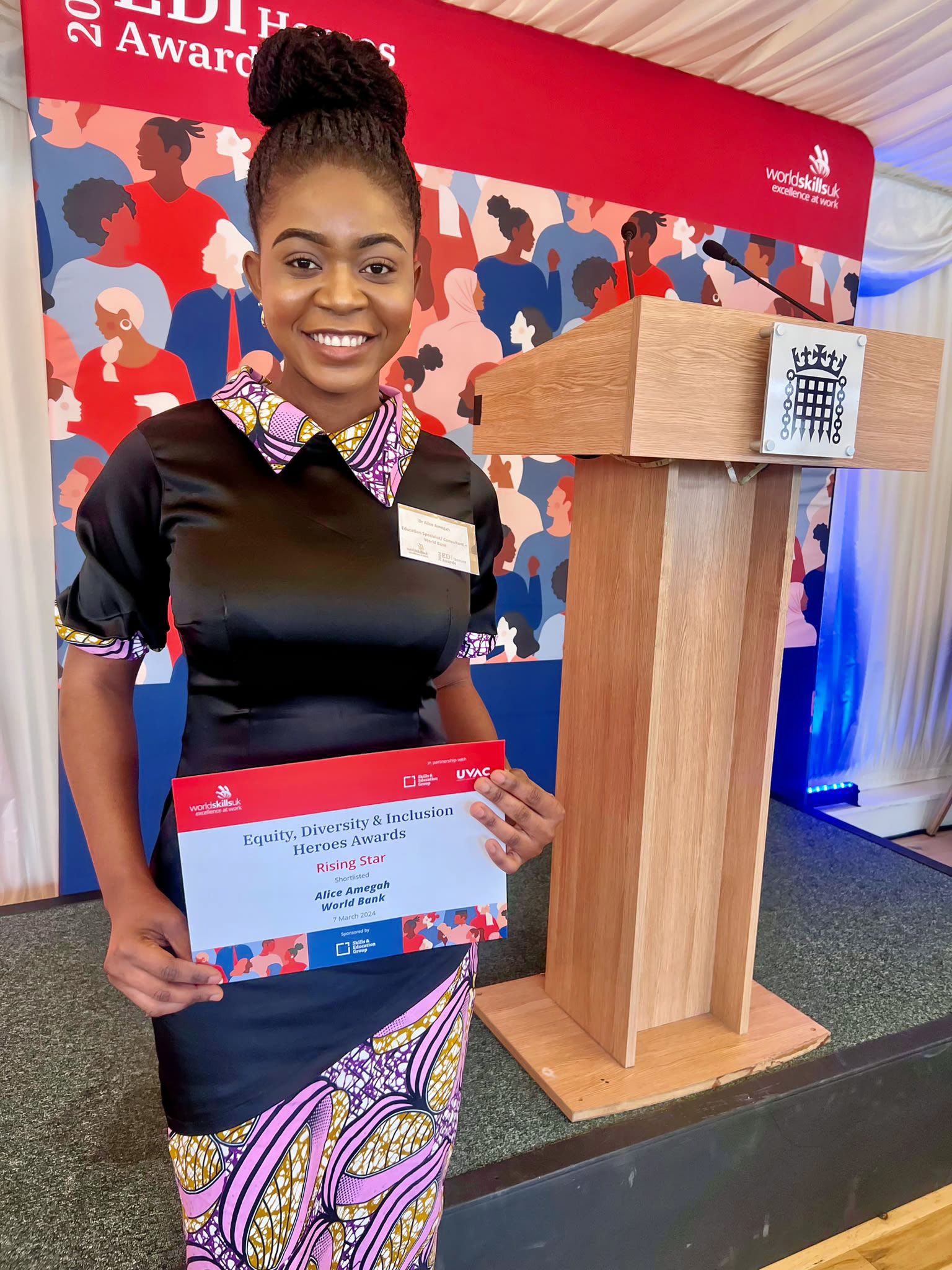
Alice as a finalist at the EDI Heroes Awards.
Alice as a finalist at the EDI Heroes Awards.
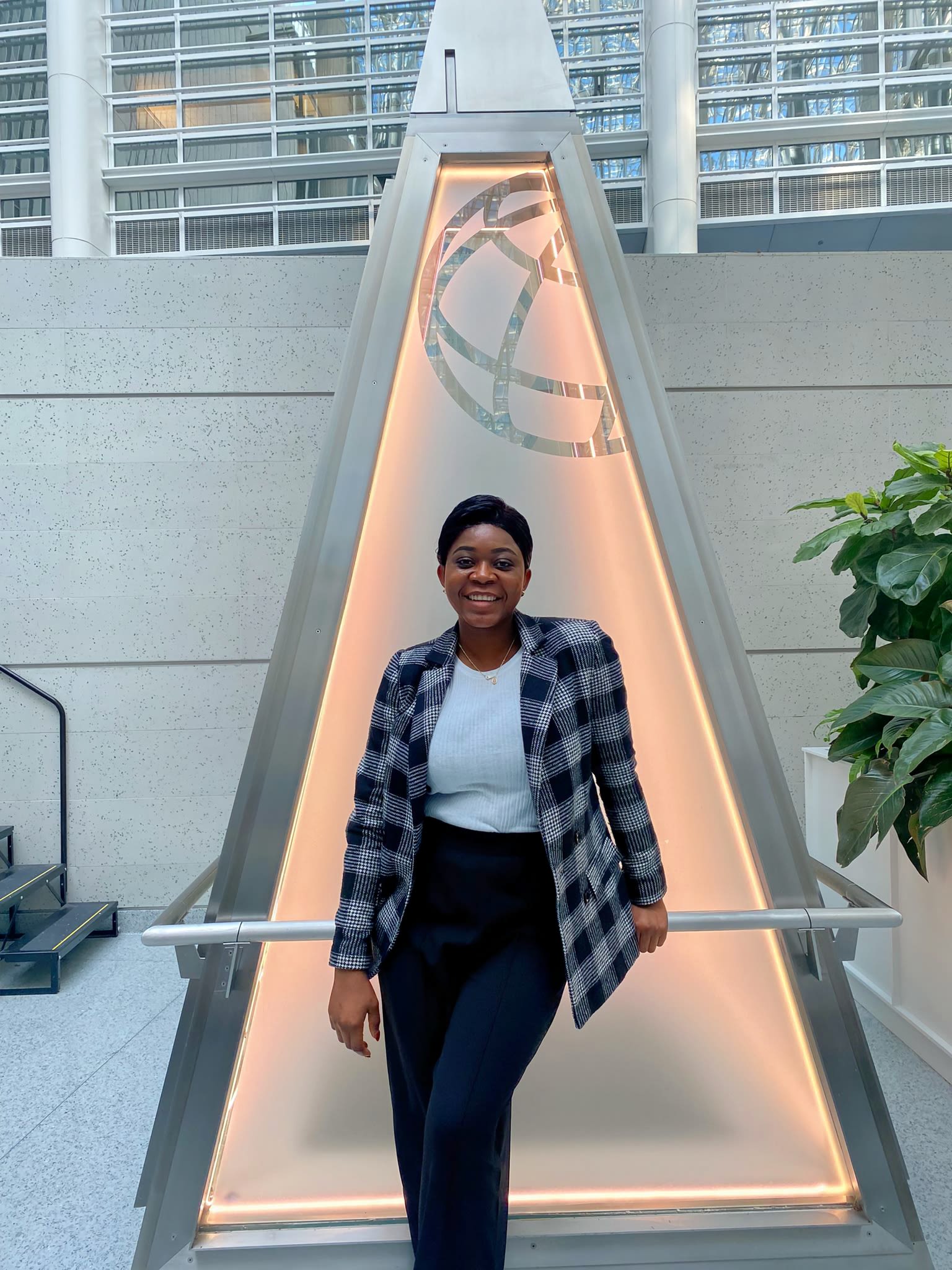
Alice at the World Bank
Alice at the World Bank


